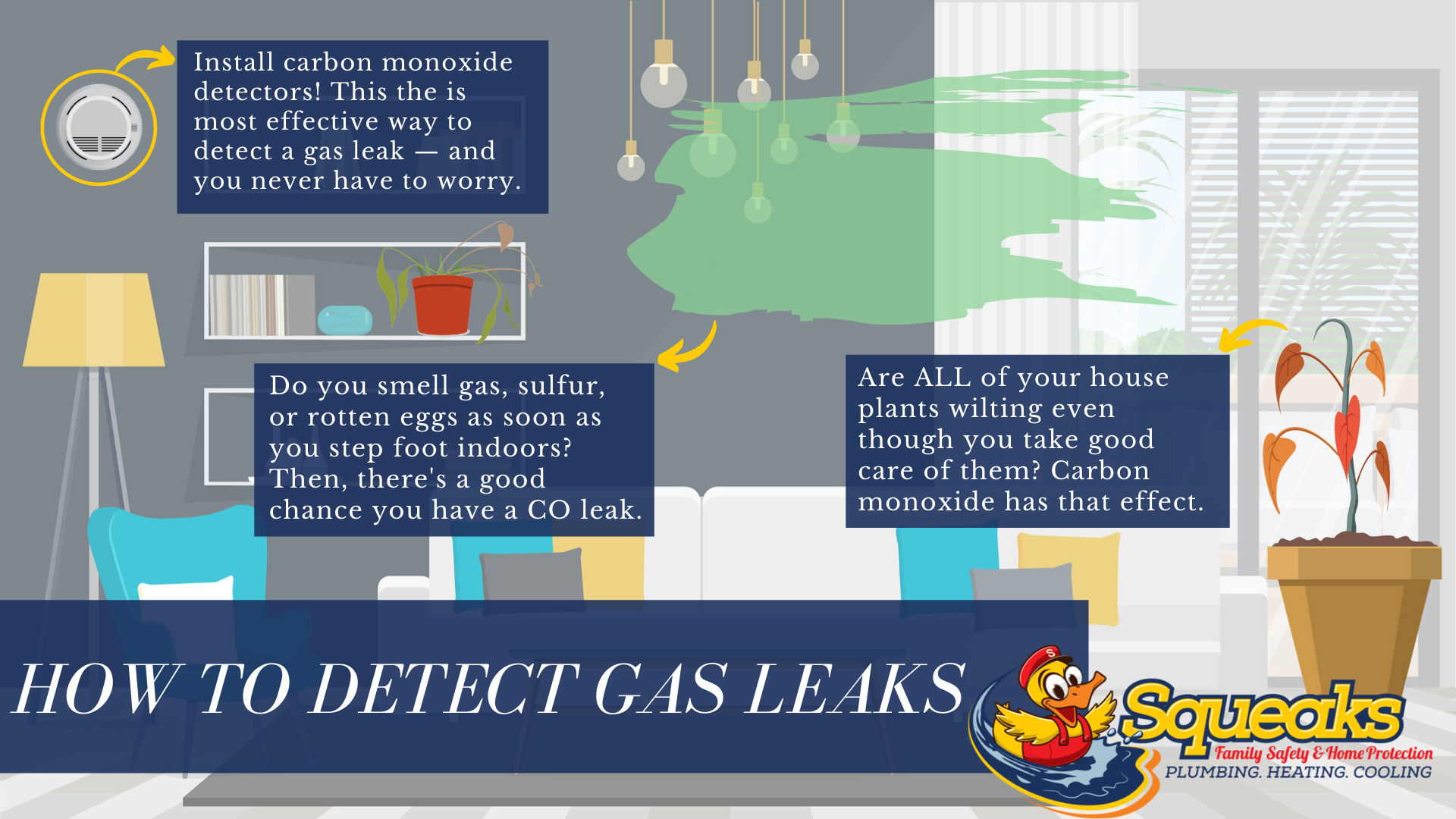When it comes to your furnace, there’s no such thing as a small gas leak or gas leak repair. Every second your gas line is faulty, it’s contaminating your home with a dangerous poison, slowly affecting those you love the most. That’s why it’s extremely important to reach out to a Squeaks Family Safety & Home Protection plumber in Denver and surrounding areas if you suspect something is wrong with your gas line. To learn more about how to detect a gas leak in your home, continue reading below.
How can you detect a natural gas leak?

Where does carbon monoxide come from?
We hope you’re ready to revisit your high school chemistry days! Carbon monoxide is a byproduct of the combustion process, which is how your furnace produces heat. Under the right conditions, fuel, oxygen, and heat react to produce heat energy and carbon monoxide. This is the process your furnace constantly, and safely, initiates to provide your home with heat.
When the room temperature drops below the designated thermostat setting, your furnace will get a signal that it’s time for action. The gas valve will open to allow natural gas to flow through the burners, where the ignitor introduces a spark that creates heat inside the heat exchanger. The blower fans will direct heat and CO gas through the ducts and out of the indoor and outdoor vents, respectively.
Your furnace also has a built-in safety feature known as the flame sensor that’s designed to turn off incoming gas when it doesn’t detect the presence of a flame. You can imagine what a disaster it would be if the flame sensor were to malfunction. However, any damaged component in the furnace can put you at risk of a gas leak, from the blower fans to the various valves to the gas line itself.
Which is the best precaution against carbon monoxide poisoning?
The best way to protect yourself and your family from falling victim to a dangerous gas leak is to install and regularly maintain CO monitors. Carbon monoxide detectors may look the same as your typical smoke alarm, but they perform totally different functions. There are different models of CO detectors available for purchase, including biomimetic sensors, metal-oxide semiconductors, and electrochemical sensors. With good care and maintenance, they all last around seven years.
Who do you call for a gas leak?
It may seem strange, but the best person to call for a gas leak is your local plumber! Squeaks Family Safety & Home Protection plumbers have been training for years to quickly and effectively handle all gas line repairs in and around the Denver area. Your safety is our top priority; your comfort is next on the list. Rest assured that you’re in good hands when you have a Squeaks Family Safety & Home Protection technician taking care of you.




